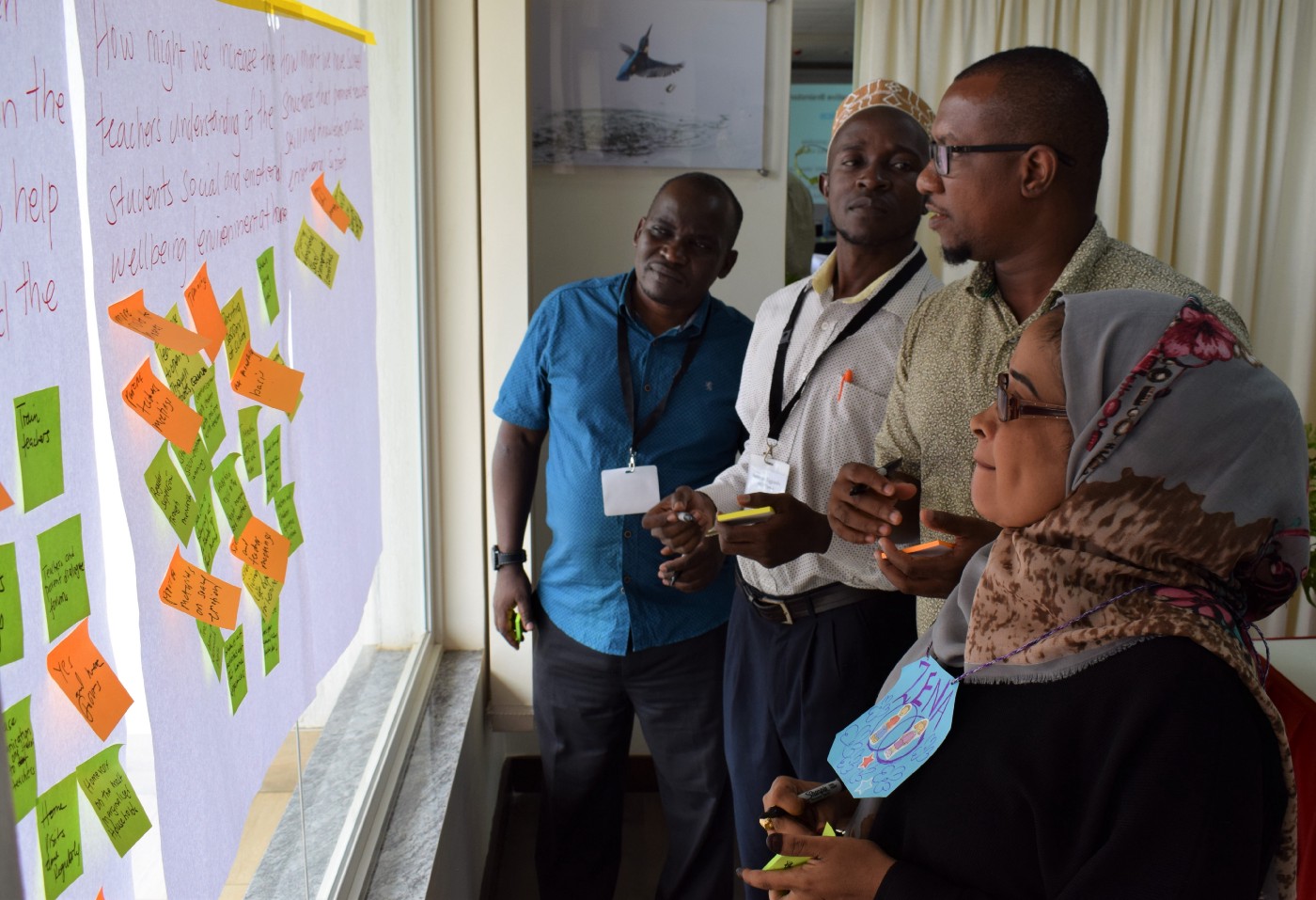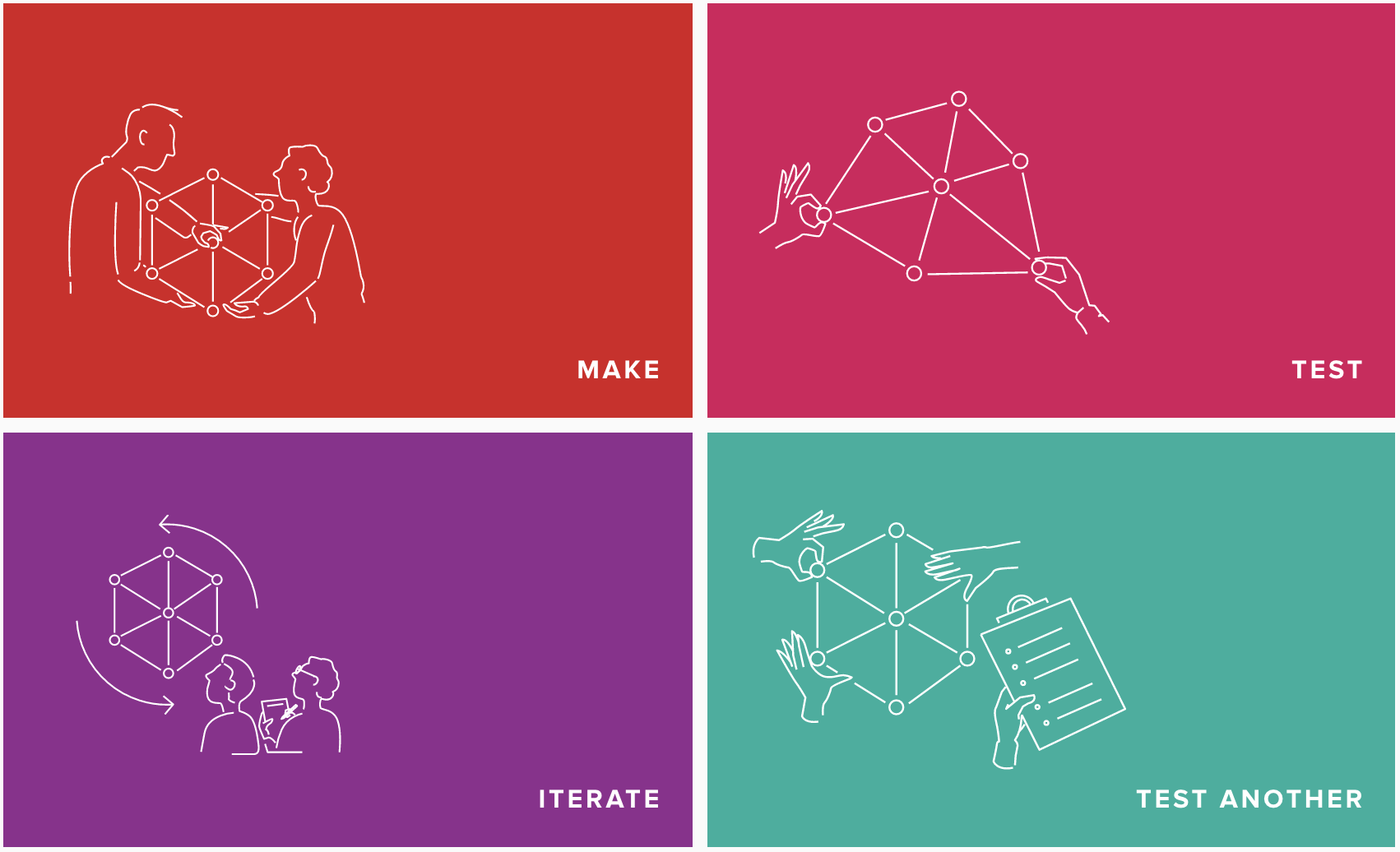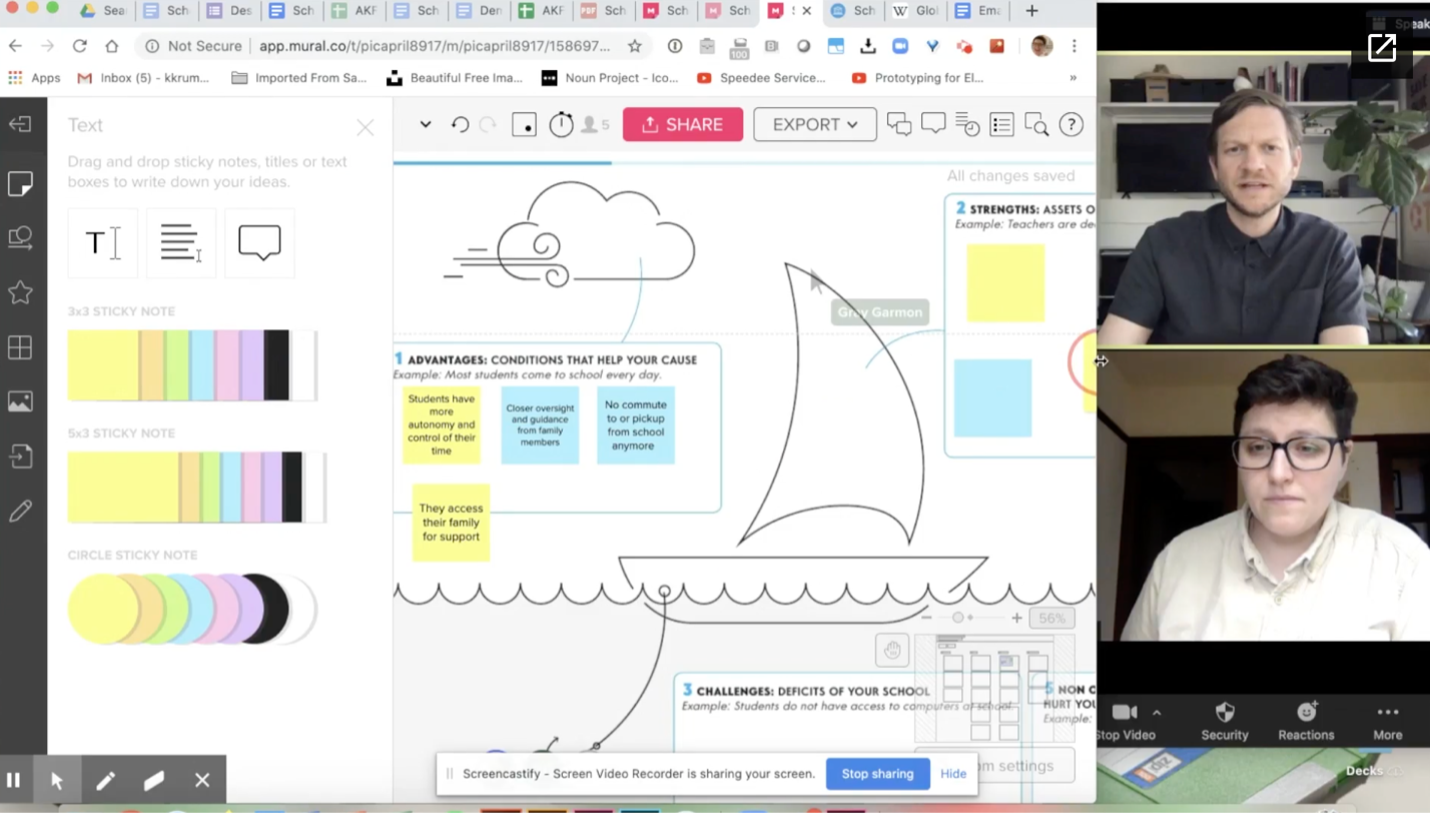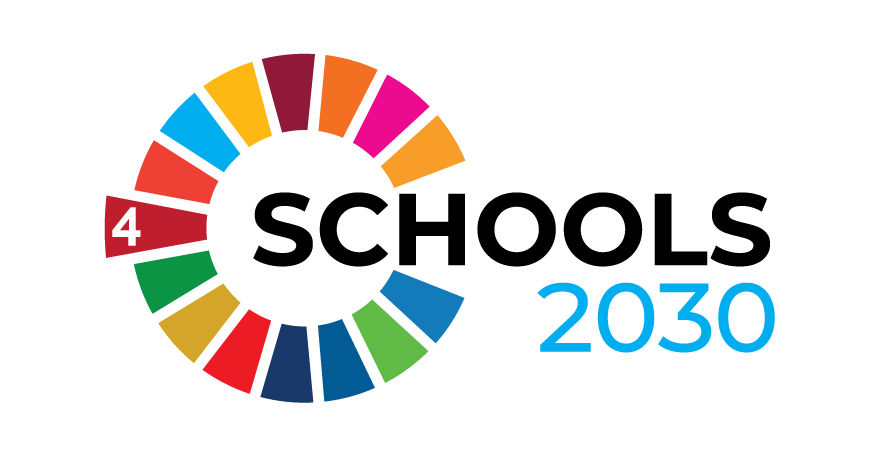A significant milestone was recently reached in the emerging Schools2030 story – the teams have launched the Schools2030 Human-Centred Design (HCD) Toolkit in their respective geographies.
The Schools2030 programme began in 2019 with the aim of supporting schools to search for ‘what works’ to improve holistic quality learning for all. What this means in practical terms is supporting teachers and school leaders in all ten of Schools2030’s countries design their own education “solutions” to meet the learning needs of their students and to help them achieve their full potential.
Of course, Schools2030’s interventions could not have come at a timelier moment in recent history, with educators everywhere seeking to manage the new and complex challenges wrought by COVID-19. Against this backdrop of school closures and disrupted learning, a series of intensive workshops with Schools2030’s country teams were held last year to introduce the Schools2030 HCD Toolkit to the country teams. Though originally planned as in-person events, these workshops of course pivoted to online, with teams meeting from across the world in virtual sessions to learn how to use and implement the HCD Toolkit across the schools and communities in their respective countries.
“We believe that educators are designers. Every day, teachers create experiences for their students developing student goals, considering different student needs, iterating between lessons, and impacting student learning outcomes.”
schools2030.org
But the journey of the Toolkit actually began much earlier in 2019, when AKF’s Global Innovation Lead, Munir Ahmad, engaged two design-thinking experts, Katie Krummeck, formerly an Education Designer but now AKF’s Global Design Advisor, and Gray Garmon, Assistant Professor and Director of the Centre for Integrated Design at the University of Texas in Austin. Their shared goal was to create and deliver the tools needed for 1,000 schools from across the world to identify and co-design education “solutions” to meet the needs of their own unique contexts.
Working alongside AKF’s new global initiative Accelerate Impact – which seeks to embed the HCD process across AKF’s operations – the three experts set about using design-thinking methodology (and specifically HCD) to create early versions of the Toolkit: that is, both the package of resources that would be created, as well as how these would be delivered to the Schools2030 teams, and ultimately the schools themselves.
Such a complex process needed some early direction and focus to keep it on the right track. The team worked in the early stages to develop some 30+ design principles that would guide their process and ensure that whatever was created remained relevant and useful. These included both broad requirements such as “support a design process that generates solutions that make sense in the educators’ context” to more user-specific ones, for example “to provide an opportunity for teachers to practice and gain confidence”. Whatever was eventually created, it needed to be easy-to-use, engaging, and provide the means for stakeholders to work collaboratively to co-create innovative ways to improve their learning environments.

During a video interview in 2020, conducted mid-way through the workshops with Schools2030’s teams, Krummeck and Garmon spoke of the initial impetus for the Toolkit. Krummeck stressed that whilst educators and community members were indeed best-placed to become agents of change within their contexts, often being emersed in challenging circumstances can sometimes make it difficult “to step back and get some creative perspective”. Both were keen to impart their knowledge and skills to empower educators in differing contexts with a set of tools that could accelerate and amplify the impact of any interventions the educators might design.
Working with Munir Ahmad, and employing HCD methodology to ensure a useful and relevant document, the early iteration of the Toolkit was ready in the opening weeks of 2020. The expert team – joined by AKF’s Global Education Lead, Dr Andy Cunningham – set out Nairobi to launch the HCD Toolkit training workshops for AKF’s Schools2030 staff and partners from Kenya, Uganda, and Tanzania, as well as a team from the Regional Education Learning Initiative (RELI) – a network of more than 80 civil society organisations.

Including RELI in the workshops demonstrates a critical component of the way both AKF and Schools2030 work – by deepening partnerships with civil society organisations in every geography they are based. RELI’s network reaches some 26,000 schools and so by sharing the knowledge of how HCD works with these types of key partners early on, Schools2030 aims to have greater impact by connecting to even more educators, giving them the opportunity to be involved in the innovation process.
“We believe that empowering educators with foundational design tools and methods will not only amplify the work they currently do but will also amplify the learning potential of their students.”
schools2030.org
Naturally, when the pandemic forced worldwide social distancing and travel bans, the workshops were adapted to a virtual format by the design consultants. Krummeck and Garmon conducted online sessions and created a series of videos with the pair of them diligently working through the Toolkit by way of demonstration. The videos also form part of Schools2030’s growing repository of guides, resources and tools, all designed to fulfil that central mandate of empowering schools to co-design their own solutions. The videos are, like the Toolkit, completely free and available on the Schools2030 website.
Over 12 weeks, the consultants walked the teams through the different stages of the HCD process in the virtual training sessions, whilst separately turning the challenge on themselves for the video series. Every phase of the process was explored in detail – right through from the initial ‘Launch’ phase, all the way through prototyping, testing, iterating and testing again. The work was rigorous and certainly a learning curve for many involved, but it was also widely lauded as being both fascinating, useful and critical for deepening Schools2030’s impact.

The 184-page Toolkit is now available in multiple formats and languages and, alongside the additional videos, guides, and resources, is ready to be rolled out across Schools2030’s geographies to help educators and communities co-create workable education solutions. Further, in line once again with HCD principles, the format continues to be tested, iterated and adapted as needed – whether at the global level or by helping the different countries adapt the Toolkit to their own needs and contexts.
Halima Shabaan, the National Coordinator for Schools2030 in Kenya, was one of the lucky few who attended both the in-person HCD workshop in January, as well as the virtual workshops. She expressed how important the workshops have been to give the teams a solid foundation that will allow them to better support the schools as they embark on the HCD journey together:
“As a facilitator who has gone through the same journey, I am more understanding of the challenges and uncertainties the participants face and therefore am able to support them better (partly by sharing my own journey and struggles with them).”

In her essay on the creation of the Toolkit, Krummeck describes how it aims to support stakeholders through the complex process of designing solutions to complex problems:
“Every phase of the design process is a cycle that can be completed at a self-directed pace and redone as many times as needed until the team is ready to move to the next phase… We leveraged our experience as both designers and educators to scaffold the toolkit using the best practices of adult learning. We edited repeatedly for clarity, accessible language, and user experience.”
There are already emerging stories of success. Team India was able to work with educators in Bihar to design low-cost learning-at-home kits to support students and families through India’s national lockdown in 2020. Primary schools in two of Uganda’s largest cities, Kampala and Arua, have begun addressing ways to keep their children safely occupied when outside of school as well as reducing non-attendance rates through the HCD process. In addition, work with notable partners Jacobs Foundation and HundrED has already begun to create a global repository that will house these many and varied solutions as they emerge from local contexts, with a view to sharing and scaling as appropriate. It is believed that many of these solutions can address needs at a global scale, and can bring about the positive systems change needed to work towards SDG4 – quality education for all.
Despite the hurdles brought about by COVID-19, and thanks to the hard work and dedication of those involved, Schools2030 remains on course to deliver thousands of teacher-led, classroom-based solutions in the coming years that could potentially scale to solve education challenges the world over. As the country teams launch the HCD Toolkit in their geographies, the coming months will be some of the most exciting, and most crucial, for the flagship programme as it seeks to demonstrate to the world that local communities can and do have the power for positive and sustainable change.
Schools2030 is a ten-year participatory action research and learning improvement programme based in 1,000 government schools across ten countries. Using the principles of human-centred design and focusing on the key transition years of ages 5, 10 and 15 years old, Schools2030 seeks to catalyse locally-rooted, teacher-led education solutions to improve holistic learning outcomes for the most marginalised learners worldwide. The Schools2030 HCD Toolkit is completely free and available in variety of formats. Please download it here.





